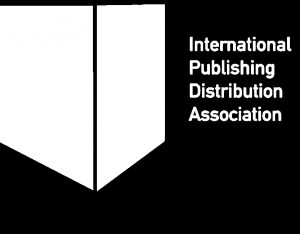Gregorio Pellegrino (Chief Accessibility Officer at Fondazione LIA) organised a conversation during the Accessibility Camp, that took place within the conference Readmagine 23. This session was focused on the situation of accessibility in the European publishing landscape. Under the title of «European publishers and the roadmap towards accessibility» the round table had Gautier Chomel (Project manager at EDRLab(, Kristina Kramer (Deputy Director for European and International Affairs at the Börsenverein des Deutschen Buchhandels) and Stacy Scott (Head of Accessibility Taylor & Francis) speaking about some of the most interesting initiatives at EU level.
Pellegrino started by saying that we need to understand how different content creators that are not social media influencers in this case «but our publishers are moving through, being more accessible. This is because it means changing workflows, changing agreements and contracts with authors, changing the way the publications are managed and distributed. And since there are so many challenges, “I think it’s really interesting to understand and to get some tips and some ideas on how different publishers around Europe are moving so that you can grab some ideas and try to do the same. One thing that I love from the accessibility community is that it is quite a small community and we are friends and we meet each other at conferences, at a lot of online calls, but also we go out for dinner together or for drinking. So my idea of this roundtable is like being in a pub after our day to day around a table, us here on the stage, but also with you there in the audience”.
In this video you can follow all the interventions. Stacy began her participation saying: «So, as noted, my name is Stacey, so I was born blind. And so I’m very much used to the idea of not having the ability to read a printed book. And so it’s wonderful because in my career I’ve really strived to make sure that everyone can get access to digital content. And it’s wonderful to see so many people here because ten years ago, we wouldn’t have even had half as many friends here to talk about accessibility. So it’s really great. Taylor and Francis, they really pushed forward on accessibility from about 2019, so just before the Pandemic. So it gave us something to do during the Pandemic. We really turned our heads to accessibility during the Pandemic. So one of the key things, obviously, that we wanted to do is make our content accessible to everybody. And so we made sure that all of our 160,000 books are all available in EPUB, and that is EPUB three, and that they all have accessibility features built in in what we call born accessible so we can’t unscramble an egg, so we don’t make our content not accessible and then go back and retrofit accessibility later».
She added that is very expensive and it’s very resource intensive and that is the reason why making all the books “born accessible” is the easiest way to build it into the workflow so their books and journals have (over 360,000 journals) about 750,000 articles have image descriptions in them. The accessibility includes their platforms, marketing and social media. At the first of this policy they used the outsourcing for image descriptions, but now they created an author hub to get authors on board with accessibility and provide the descriptions.
About this process Stacy added “And they often say things like it never occurred to me to do this or actually write these images. Putting the descriptions has meant that I’ve thought about my teaching in a different way. I’ve thought about how I’m putting this information across not just to people who are visually impaired but to my entire audience. Our author feedback has been really positive and the hope is that it’s motivating more authors to add their descriptions as well. And so it’s been a long process, but it’s been an absolute joy, I would say”.
Kristina Krammer talked about the key topics that they are working on in the association and their best practices
Krammer started by providing a clear image about the Börsenverin and how the accessibility issues should be tackled from a whole value chain perspective: “We are the association and we are representing publishers, booksellers and wholesalers and the distributors. So we have the whole value chain in one association and the whole accessibility topics will be addressed there. So we said we need a task force, a group that takes care of accessibility, of accompanying the members till 2025 and to help them on the journey. Maybe two words about the task force so we are 44 members in this task force really representing publishing houses, booksellers and wholesalers”. It is interesting to stress the fact that in this task force they have members from Austria and Switzerland (German speaking market) and members of the Blind organization and the specialist organisations.
The view of Krammer about the typology of actors in the publishing houses and their relation to accessibility: “There’s the group where the publishing house hasn’t heard about the topic at all, has no clue. Fortunately this group is getting smaller and smaller and I think we contributed a bit in the awareness building process. And if we meet a publisher who has no clue at all, we have a lot to offer like information and maybe some ideas to start the process. Then there is the group of publishers, mostly small and medium sized publishers who rely on the support of their distributors, of their service providers like Bookwire or Pagina. We have a lot of other great associates and service providers who offer great support in the production process, in the distribution process, but also in optimising metadata”.
In the case of this type of publishing houses the technical perspective is fine, because they are taken care of, but the Association is encouraging them to think beyond the technical, to think about topics such as marketing, to think about communication and also to understand the whole topic within the publishing house.
Finally, she referred to a third group, which is the type of publishing houses that have a really deep understanding of what’s going on with accessibility: “They are dealing with it for a long time, they are very dedicated. There’s often one person who is the contact person for the topic of accessibility mostly with a task force around it or with a working group with whom he or she is working with and they really make the topic part of their philosophy of their top priorities. They do trainings in house, they offer webinars and they want to involve all the departments in the publishing house. So it’s really the bigger picture they are representing there and at a special level of knowledge they also take the opportunity to exchange with the specialized institution. So they are really making most of it and are really digging deeper into the topic. So this is, I think, the third group, and correct me if you have another understanding, but what I see is that especially for the third group, it’s not an CEO topic, it’s not top down, but it’s more a topic that comes from dedicated colleagues and that is more a bottom up movement. And I think this is really great to see, but maybe it’s time also that it becomes a CEO topic for the next two years to come, so that everybody really gets involved and it’s a matter for everybody”.
Gautier Chomel began by sharing an interesting description of the general framework of activities developed by EdrLab. One of those projects is funded by and aims to provide stakeholders with good information that can help them establish a roadmap for accessibility. One of his insights was: “We expect to provide those first result insights by October, something like this before the end of the year… But here’s the problem we’re facing with the backlist is how do we remediate 3 million of files? It’s very complex. What I would say is we should slice the things. So in order to slice the collection, slice the files, we have to know what is the state of the file, what are the gape? This is an analysis of what is inside the book”.
One of the tips by Chomel was to focus on quick wins by using a realistic approach and a checklist “that will provide anyone with a good map and allow anyone to build a navigation compass and to know where we are going. If we see the big problem, we will be too afraid to address it. But if we have an analysis we can maximise and say okay, this part will be addressed this way, etcetera. So once you have a state of the art of your files, you can start with the simple go for quick wins. Every little step achieved will be a win in reading quality improvement. So do what you can do quick and first do it. Even if it’s not the whole package, it will be done and it will be of use, then inform the users. Because what you do if the users has no information, they don’t know even the possibilities given for a rich reading experience in an e-book. And then, of course, plan for the complex and monitor your efforts to make sure that you achieve the thing in the years”.
Gautier Chomel is Project manager for EDRLab, 25 years experienced editorial and book production designer with a 12 years specialization in accessible content for visually impaired people. Gautier is also a confirmed trainer who worked for international organizations like WIPO and the Daisy Consortium and has operated éditadapt, a certified training center. His passion for book production techniques goes as far as hand printing using 3d matrices during his spare time.
Gregorio Pellegrino has a strong knowledge in the digital publishing field, new media with particular attention to accessibility for visually impaired people. He is a consultant in these areas for publishing companies (especially regarding formats, international standards and authoring platforms). He is the technical manager of Fondazione LIA where he coordinates consulting and training activities for national and international organisations who want to change their production processes in order to embrace accessibility. He is involved in international working-group devoted to accessibility of publications and standard formats.
Kristina Kramer is Deputy Director for European and International Affairs at the German Booksellers and Publishers Association (Börsenverein des Deutschen Buchhandels). After completing her training in translation and interpretation in Munich, she studied Cultural Sciences in Berlin and Paris. She worked for the Franco-German Youth Office before joining Börsenverein’s team for the organisation of the Peace Prize of the German Book Trade in 2010. From 2012 on, she has been focussing her work on public affairs at the association’s Berlin Office. Kristina set up and runs the Taskforce Barrierefreiheit (Accessibilty) within Börsenverein.
Stacy Scott is a Mathematics graduate. She has been professionally involved in the Special Educational Needs and Disabilities (SEND) education sector, forming the basis for my career – beginning as a University advisor; and following a trajectory through a diverse and rewarding career. In prior roles, she worked in Bangladesh, India and across several countries in Africa, on making education more inclusive, which saw my involvement in a vast array of diverse, illuminating and extremely meaningful and challenging projects. Then she headed the RNIB Bookshare Service in the UK; working with over 1,100 publishing partners, to bring their content onto the RNIB Bookshare platform, to be used by students with any print-disability, for free.




